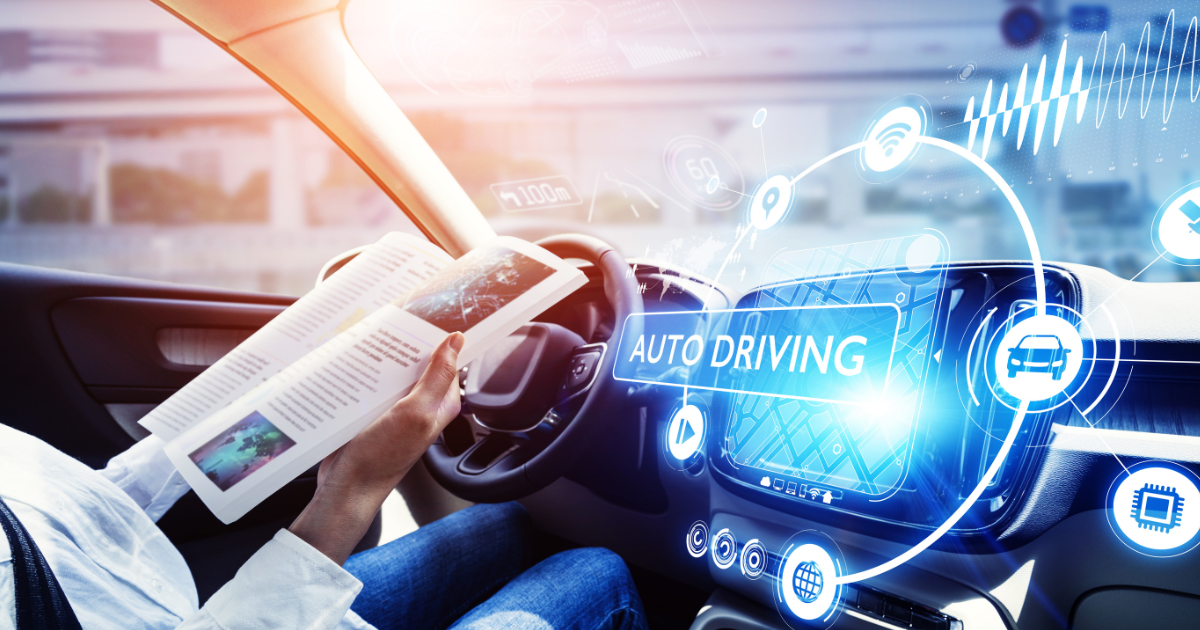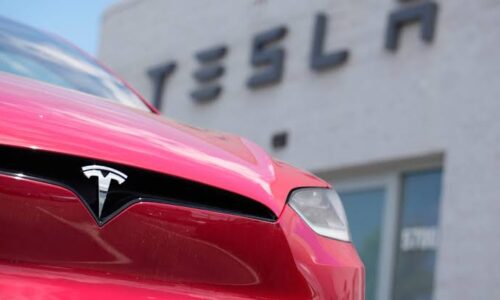- Judith Akatugba
- 0 Comments
- 622 Views
For millennia, people have been fascinated with driverless cars. In the late 1400s, Leonardo Da Vinci drew up the blueprints for an imaginary self-driving cart; in the 1930s, mechanical autopilots for aircraft were developed. A self-driving car was first presented to the public at the New York World’s Fair as part of General Motors’ (GM) Futurama display, which showcased GM’s futuristic vision.
It is now a reality because to developments in GPS, digital mapping, processing power, and sensor technologies. However, what possible effects can autonomous vehicles have on the auto sector and the overall economy?
Read Also: Netflix shelved Halle Berry’s film – US media
Comprehending Automotive Automation
Let’s discuss the operation of driverless automobiles before moving on to discuss the effects on the auto industry and overall economics. In order to offer a 360-degree view of their environment, autonomous vehicles (AVs) are outfitted with sensors such as LiDAR, radar, cameras, and ultrasonic sensors. They can instantly identify objects, people, and traffic conditions thanks to these sensors.
High-definition maps and GPS data are also essential for AVs to plan routes and comprehend their environment. Algorithms for artificial intelligence and machine learning understand the world, recognize things, and make judgments by processing input from sensors and maps. With the help of AI algorithms, advanced control systems safely and precisely drive autonomous vehicles (AVs) by regulating steering, acceleration, and braking.
To guarantee dependability and safety, testing and validation are carried out using simulations, closed-course testing, and real-world trials. These technologies work together to enable autonomous vehicles (AVs) to navigate intricate roads, identify traffic signals, detect impediments, and adapt to changing circumstances. This disrupts the auto business and the economy by enabling them to securely transport passengers without the need for human interaction.
Effects on Related Industries and the Automobile Industry
Historically, the auto industry has been sluggish to adapt to technological advancements. Due to the reluctance of established automakers to produce a fully functional electric vehicle, innovative start-ups like Tesla Motors (TSLA) have been formed. Technology firms like Google or Apple (AAPL) will probably set the pace if self-driving cars become commonplace, severely undermining the earnings of more established automakers like GM, Ford (F), or Toyota (TM).
Let’s examine some of the more focused effects that AVs may have on the automotive sector.
1. Modifications to Business Models
Automakers’ conventional business model may change if autonomous vehicles become more prevalent. The market for autonomous vehicles is expected to reach $33.5 billion in 2023, and by 2028, it is expected to have grown to over $93 billion.
Automobile manufacturers are looking for new revenue sources through mobility services rather than merely producing and selling cars to individual users. This involves creating self-driving ride-hailing services, car-sharing networks, and subscription-based business models where users pay to use a fleet of self-driving cars instead of buying their own. In order to provide integrated and seamless mobility solutions, this transition may necessitate automakers forming agreements with tech companies and mobility service providers.
2. Fresh Automakers
Tech behemoths and upstarts have been interested in the automotive sector due to the advancement of autonomous technologies. With their significant investments in AV technology, corporations such as Google, Tesla, and Apple are posing a threat to established automakers. Because of this, the battle to provide dependable and secure autonomous vehicles is becoming more competitive for automakers.
3. Interior Design
Autonomous vehicles provide new design possibilities since passengers will no longer need to focus on driving. It is possible to redesign interior areas to make them cozier and add amenities for work or pleasure. In order to maximize safety and optimize sensor placement, automakers must also reconsider the architecture and design of vehicles in light of the integration of modern sensors and AI technologies. The possibility for these vehicles to behave differently is changing what cars could look like in the future.
4. Connectivity
AVs’ sensors and AI algorithms produce enormous volumes of data. This information is crucial for boosting safety, streamlining traffic, and developing autonomous algorithms. While the full range of applications for big data is still being developed, think about how local governments may obtain and use this information to better understand traffic patterns, driving habits, and strategies for enhancing their communities.
5. Automotive Supply Chain
The automotive supply chain may be impacted by the switch to autonomous vehicles. Automakers may need to partner with new suppliers for specialist AV components, such as enhanced sensors and AI processors. To further guarantee the dependability and safety of autonomous vehicles, AV technology may also necessitate modifications to testing procedures, quality assurance procedures, and manufacturing techniques.
6. Regulation by the Government
The advent of driverless vehicles poses intricate regulatory obstacles. To control autonomous vehicle operations, safety testing, liability, data privacy, and cybersecurity, governments and legislators must establish clear legal frameworks and standards. Remember that typical driving methods result in road traffic crashes that claim the lives of almost 1.3 million individuals annually. It will be necessary to harmonize laws between states and regions in order to promote the development and use of autonomous vehicles globally.
7. Vehicle Insurance
Automakers that produce driverless cars guarantee both safety and a decrease in collisions. Drunk passengers will be driven around by their mechanical Hobsons, making drunk driving a thing of the past. Consequently, there may be a sharp decline in the frequency of hazards, which would have a negative effect on auto insurers like Allstate (ALL), GEICO (BRK.A), and Progressive (PGR). The cost of insurance would skyrocket along with the profits of insurance firms since there would likely be fewer accidents.











